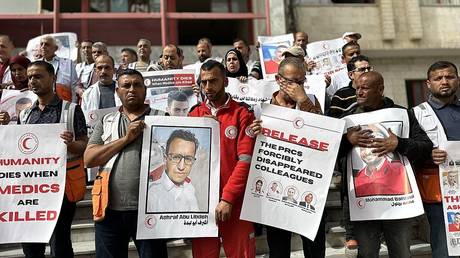
The infection rate in France is too high to avoid another national lockdown, a top infectious diseases expert has said. She’d earlier said she was “baffled” by President Macron’s decision against more restrictive measures.
“We’re still at a high plateau in France. And to bring it down, new restrictive measures will be inevitable,” Karine Lacombe, researcher and the head of the infectious disease department in the Saint-Antoine hospital in Paris, told France Inter radio station.
Lacombe said that, although the 8pm-6am and later the 6pm-6am curfew has produced a “positive” effect, the infection rate remains “very high,” and hospitalizations are at the same level as in March and April 2020.
“What could we have done?” Lacombe asked. “Lock down very tightly, take advantage of the holidays to move to a really low level of infections and avoid the overwhelming of the hospital system, and, finally, use our very important weapons: tests and vaccination.”
The researcher made her comments a day after Prime Minister Jean Castex said that the situation with Covid-19 “does not justify” a new nationwide lockdown. Calling the situation “fragile,” the PM urged everyone to follow the existing restrictions, including the curfew.
Lacombe had previously criticized Emmanuel Macron for being hesitant to enact stricter measures against the coronavirus. “We are scared, baffled,” she told L’Obs magazine earlier this week. “Despite the scientific evidence, Macron has stayed true to his liberal side.”
France declared a lockdown in mid-March, when the country was first by the coronavirus. The restrictions lasted nearly two months and were gradually eased throughout the summer as the situation showed signs of improvement. The infection rate began to rise in autumn, forcing the government to impose a second lockdown, which was in effect from October 30 to December 15 and was replaced by a curfew.
Officials became increasingly alarmed by the new variants of coronavirus, including a more transmissible variant first recorded in the UK. This prompted Paris last week to close borders for travelers coming from outside the EU. Exceptions were made for people arriving due to medical emergencies, for urgent family matters or for work that is deemed essential.
At the same time, the country plans to ramp up the production of the Pfizer-BioNTech and Moderna vaccines in spring. Macron said that all residents will have an opportunity to get vaccines by the end of summer.
Think your friends would be interested? Share this story!




